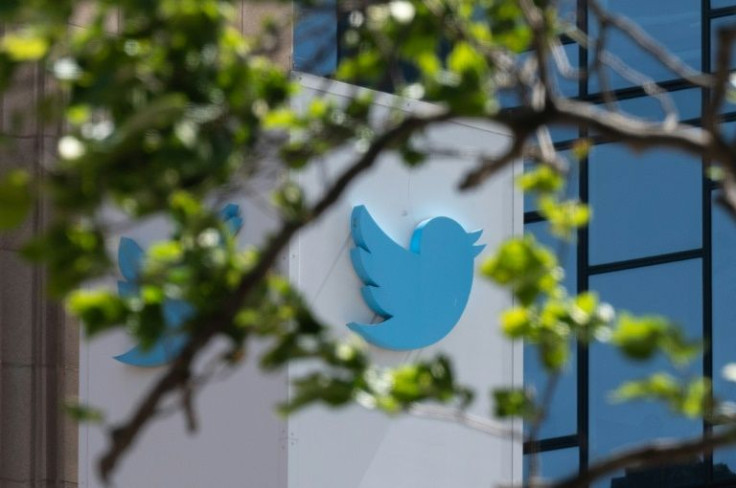So Many Tweets, So Little Time
We have reached the point where the ubiquity of social media is no longer a source of speculation and has become our reality. If in doubt, Elon Musk shelling out $44 billion for the social media platform Twitter should clarify the significance of this communication medium.
Herein lies the greatest danger of Musk’s purchase: the decision of the world’s wealthiest man to allocate his resources toward this communication tool — instead of some of the other options he has flirted with, such as donating $6 billion to end world hunger — may serve to authenticate what has become a toxic source of loneliness, anxiety and depression in our society.
“You’re going too far, oh civic-minded author,” you may be thinking. Let’s take a look: Are there really major problems for us as human beings with Twitter and other social media sites such as Facebook and Instagram? Let’s consider three interrelated areas of our everyday lives: civic discourse, authentic speech and social connection.
Polarized
An unprecedented level of bipartisanship is currently tearing our world asunder. In fact, just about all civic life has come to be characterized by political divisions that have made collective distrust the new norm, accentuating already surging levels of anxiety, stress and loneliness.
These negative mental health outcomes have all astronomically risen together, as social connection is not only lacking in lonely people but is also one of the primary means of reducing anxiety and stress.
The Undelivered Promise of Social Media
The initial enthusiasm for social media anticipated that it would encourage people to express their views more both online and in person. Neither has happened. Instead, people speak up less in person now for fear of retribution. Why? Social media has helped them realize there are many opposing views out there that they would prefer not to confront.
Most people now “go along to get along” while a few outspoken extremists dominate the social media chat waves. This collective blandness has emerged because we are all aware that the Internet never forgets and do not wish to share views that will be etched into cyberspace forever. So we remain silent while those with little to lose run the digital roost and wedge us further apart from each other.
In other words, our political debates are no longer debates; instead, they are word-vomit echo chambers in which a few non-civic-minded individuals dominate and the rest of us fall prey to Simon & Garfunkel’s admonition in “The Boxer”: “A man hears what he wants to hear, and disregards the rest.”
Your Worst Quenches Their Thirst
Social media has, strangely, created its own demand. By isolating you from your friends, your loneliness becomes greater and you feel more motivated by what the British psychologist Pamela Qualter calls the “reaffiliation motive” to check your social media and see what your friends are doing.
It doesn’t work. In some ways, social media is like calling the delivery number of a pizza franchise in your neighborhood. The more frequently you order, the fatter and less capable of walking outside to a grocery store or restaurant you become. So what do you do? You call the delivery number more often to save yourself from an increasingly challenging walk (to real, face-to-face connection).
Immobilized Without Connection
By putting you in contact with the many who matter little to you (e.g., former classmates you didn’t even speak with in real-time back in the day, friends of friends who are not friends for a reason), social media diminishes your ability to connect in real-time with the few who matter a lot. This paradoxical effect of the Internet has been well documented: We know what’s happening, yet seem helpless to change our habits.
Even worse — and more chilling — a new study has found that the more time you spend on your phone, the less enjoyment you derive from real-time conversations with the people who have truly been there for you in your life. You begin to perceive them, with all of their time-consuming idiosyncrasies, as requiring too much effort.
Yet you still crave the intimate connection that only real-time interaction produces, which expands your demand for what seems the easiest, most effortless way to tap into it — ironically, the technology that’s stamped it out of your life — social media.
So, like the pizza chain gleefully delivering delicious, non-nutritious food to your home, social media throws you overboard and then dangles a life preserver in front of your flailing, desperately lonely, sputtering body. You never quite make it back into the boat of human connection, but neither do you have the capability to swim away.
Even Musk himself has admitted on various occasions that he feels lonely. In one Rolling Stone interview, he said, “Being in a big empty house, and the footsteps echoing through the hallway, no one there — and no one on the pillow next to you … How do you make yourself happy in a situation like that?”
It is ironic that despite his own struggles with loneliness, Musk is using the unprecedented amount of resources he has accumulated through his entrepreneurial ventures such as Tesla and SpaceX to attempt to validate one of the most loneliness-inducing methods of interpersonal communication in human history.
Turn It Around
The authentication efforts of the man with the most cash notwithstanding, you can make the decision today to stop touching your phone on average of more than 2.600 times per day and begin replacing screen time with people time.
Anthony Silard, Ph.D. is an Associate Professor of Leadership and the Director of the Center for Sustainable Leadership at Luiss Business School in Rome. His blog, videos, courses and podcasts are available at www.theartoflivingfree.org.

© Copyright IBTimes 2024. All rights reserved.





















